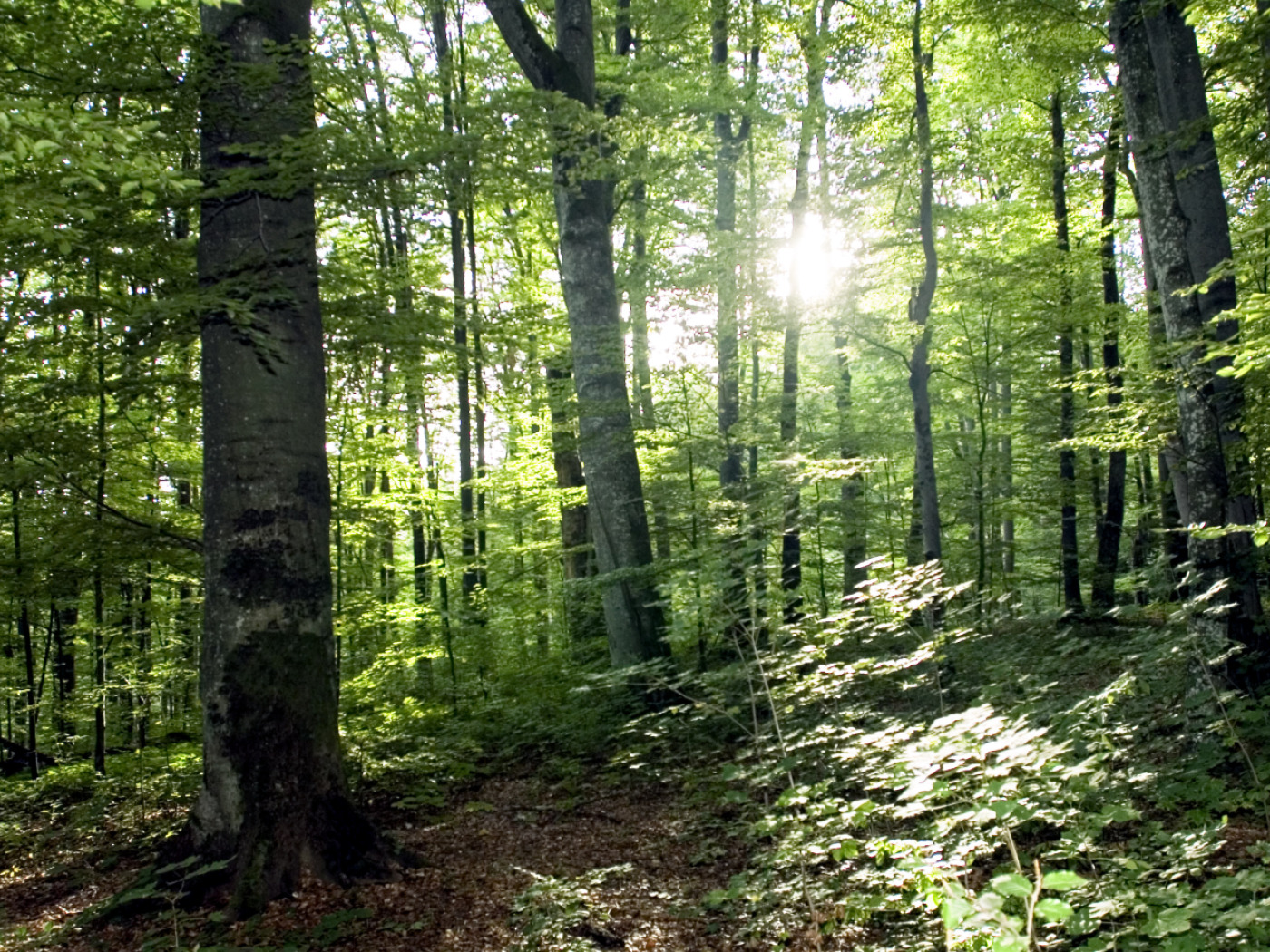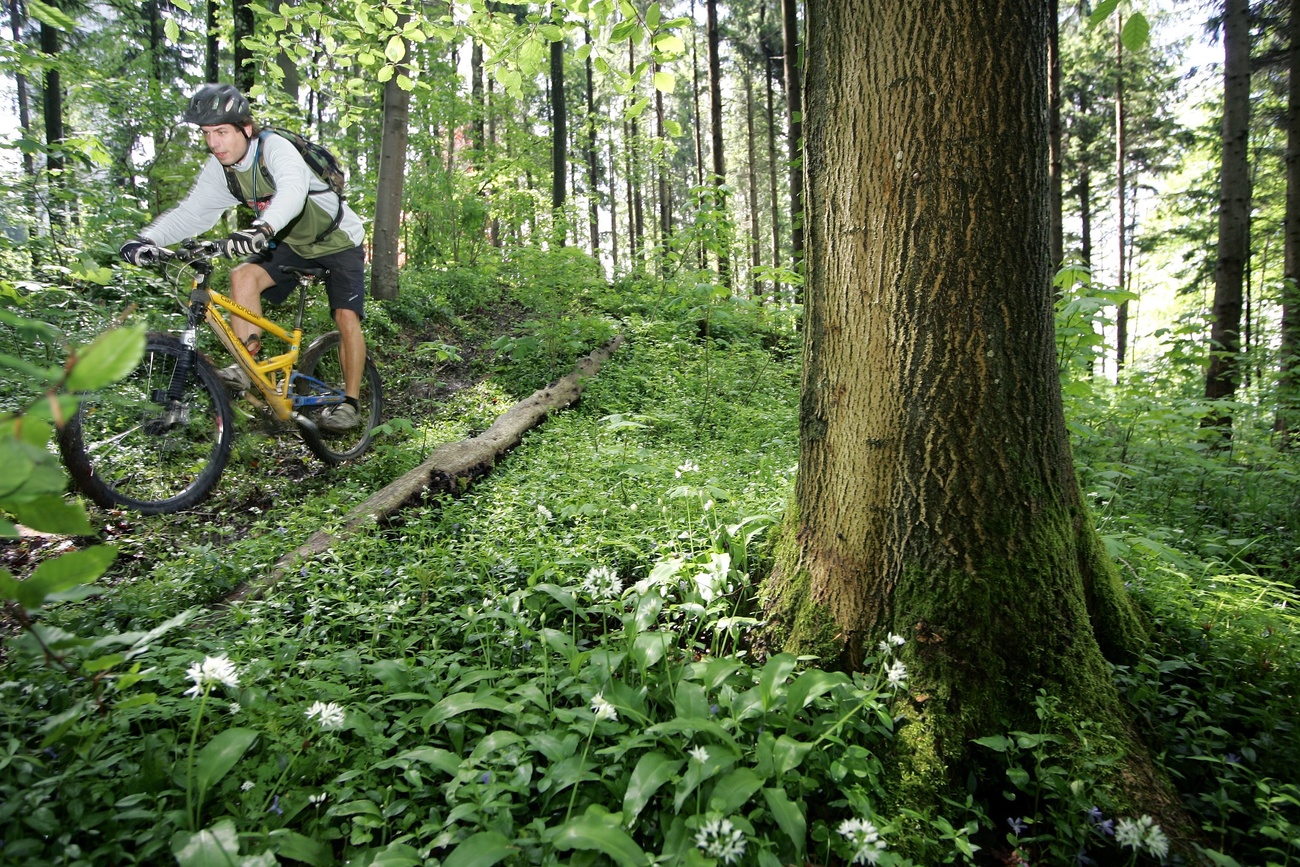
Climate change will hit beech forests hard

The future of beech in Europe does not look bright. It will be severely affected by climate change, according to a new study by the Swiss Federal Institute for Forest, Snow and Landscape Research (WSL).
Between 2004 and 2005, two research teams published two major studies on the future of beech. One predicted a bleak future for this species due to climate change. The other warned against alarmism and assured beech of its great capacity to adapt.
+Get the most important news from Switzerland in your inbox
Scientists at the WSL Institute examined both studies in the light of new data. Twenty years on, they conclude that the gloomy predictions are likely to come true.
“The predominance of beech and the amount of land it occupies will be reduced, not only on marginal sites where conditions are already no longer optimal, but also in large parts of its Central European range,” explains Arthur Gessler, WSL researcher and lead author of the new study.

More
My best friend, the forest
In particular, the species will suffer from increasingly extreme drought years. “Drought can lead to partial crown dieback, which often means the death of the tree the following year”, adds the specialist, quoted in a WSL press release on Wednesday.
According to him, not only has the quality of the data improved significantly, but the effects of climate change on beech forests and forests in general are much more tangible today than they were twenty years ago.
Extreme years
“The extreme years of 2018, 2019, 2020, 2022 and to some extent 2023 have caused massive, visible damage to trees, which foreshadows further developments,” comments Gessler.
In concrete terms, this means that the trees will no longer be able to ensure the natural regeneration of their stands and that they will be highly vulnerable to extreme events, which could lead to large-scale dieback and then the complete disappearance of this species due to lack of succession.
From today’s point of view, there is no doubt that beech will suffer even if CO2 emissions are significantly reduced, according to the authors. For forests to be ready for the future, heat- and drought-tolerant species such as oak should be introduced into the stands.
Structural and species diversity, as well as genetic diversity in beech, could also help. This work is published in the journal Allgemeine Forst- und Jagdzeitung.
Adapted from French by DeepL/ac
This news story has been written and carefully fact-checked by an external editorial team. At SWI swissinfo.ch we select the most relevant news for an international audience and use automatic translation tools such as DeepL to translate it into English. Providing you with automatically translated news gives us the time to write more in-depth articles.
If you want to know more about how we work, have a look here, if you want to learn more about how we use technology, click here, and if you have feedback on this news story please write to english@swissinfo.ch.

In compliance with the JTI standards
More: SWI swissinfo.ch certified by the Journalism Trust Initiative



























You can find an overview of ongoing debates with our journalists here . Please join us!
If you want to start a conversation about a topic raised in this article or want to report factual errors, email us at english@swissinfo.ch.